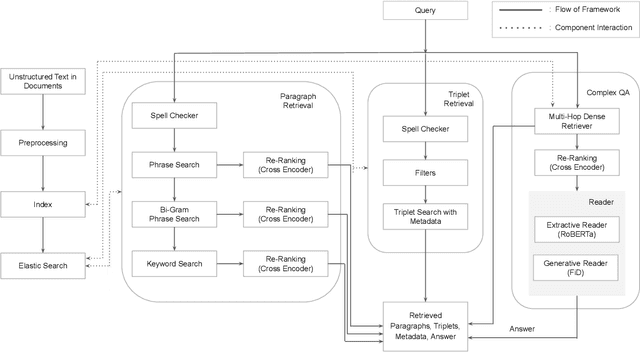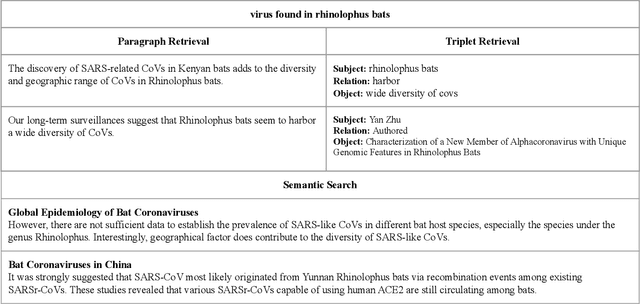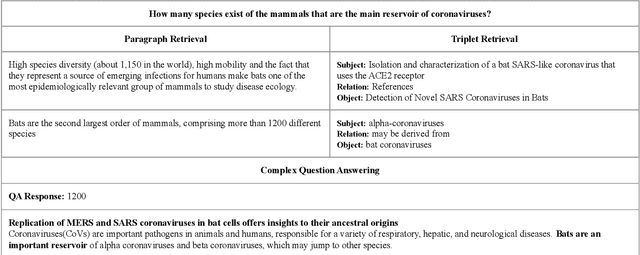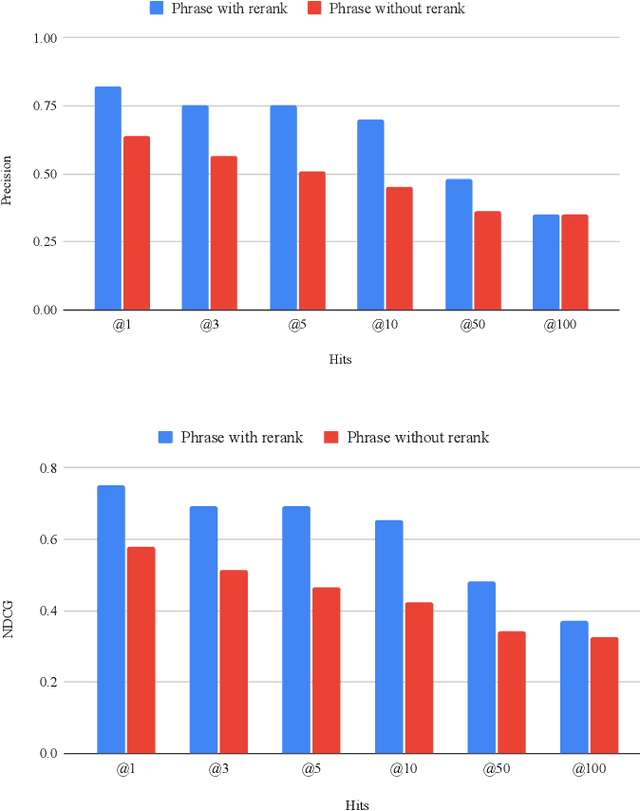Shubham Kumar
Zero-Shot Grammar Competency Estimation Using Large Language Model Generated Pseudo Labels
Nov 17, 2025



Abstract:Grammar competency estimation is essential for assessing linguistic proficiency in both written and spoken language; however, the spoken modality presents additional challenges due to its spontaneous, unstructured, and disfluent nature. Developing accurate grammar scoring models further requires extensive expert annotation, making large-scale data creation impractical. To address these limitations, we propose a zero-shot grammar competency estimation framework that leverages unlabeled data and Large Language Models (LLMs) without relying on manual labels. During training, we employ LLM-generated predictions on unlabeled data by using grammar competency rubric-based prompts. These predictions, treated as pseudo labels, are utilized to train a transformer-based model through a novel training framework designed to handle label noise effectively. We show that the choice of LLM for pseudo-label generation critically affects model performance and that the ratio of clean-to-noisy samples during training strongly influences stability and accuracy. Finally, a qualitative analysis of error intensity and score prediction confirms the robustness and interpretability of our approach. Experimental results demonstrate the efficacy of our approach in estimating grammar competency scores with high accuracy, paving the way for scalable, low-resource grammar assessment systems.
Dendritic Computing with Multi-Gate Ferroelectric Field-Effect Transistors
May 02, 2025



Abstract:Although inspired by neuronal systems in the brain, artificial neural networks generally employ point-neurons, which offer far less computational complexity than their biological counterparts. Neurons have dendritic arbors that connect to different sets of synapses and offer local non-linear accumulation - playing a pivotal role in processing and learning. Inspired by this, we propose a novel neuron design based on a multi-gate ferroelectric field-effect transistor that mimics dendrites. It leverages ferroelectric nonlinearity for local computations within dendritic branches, while utilizing the transistor action to generate the final neuronal output. The branched architecture paves the way for utilizing smaller crossbar arrays in hardware integration, leading to greater efficiency. Using an experimentally calibrated device-circuit-algorithm co-simulation framework, we demonstrate that networks incorporating our dendritic neurons achieve superior performance in comparison to much larger networks without dendrites ($\sim$17$\times$ fewer trainable weight parameters). These findings suggest that dendritic hardware can significantly improve computational efficiency, and learning capacity of neuromorphic systems optimized for edge applications.
Towards Spatially-Aware and Optimally Faithful Concept-Based Explanations
Apr 15, 2025Abstract:Post-hoc, unsupervised concept-based explanation methods (U-CBEMs) are a promising tool for generating semantic explanations of the decision-making processes in deep neural networks, having applications in both model improvement and understanding. It is vital that the explanation is accurate, or faithful, to the model, yet we identify several limitations of prior faithfulness metrics that inhibit an accurate evaluation; most notably, prior metrics involve only the set of concepts present, ignoring how they may be spatially distributed. We address these limitations with Surrogate Faithfulness (SF), an evaluation method that introduces a spatially-aware surrogate and two novel faithfulness metrics. Using SF, we produce Optimally Faithful (OF) explanations, where concepts are found that maximize faithfulness. Our experiments show that (1) adding spatial-awareness to prior U-CBEMs increases faithfulness in all cases; (2) OF produces significantly more faithful explanations than prior U-CBEMs (30% or higher improvement in error); (3) OF's learned concepts generalize well to out-of-domain data and are more robust to adversarial examples, where prior U-CBEMs struggle.
Large-Scale Knowledge Synthesis and Complex Information Retrieval from Biomedical Documents
Feb 14, 2023



Abstract:Recent advances in the healthcare industry have led to an abundance of unstructured data, making it challenging to perform tasks such as efficient and accurate information retrieval at scale. Our work offers an all-in-one scalable solution for extracting and exploring complex information from large-scale research documents, which would otherwise be tedious. First, we briefly explain our knowledge synthesis process to extract helpful information from unstructured text data of research documents. Then, on top of the knowledge extracted from the documents, we perform complex information retrieval using three major components- Paragraph Retrieval, Triplet Retrieval from Knowledge Graphs, and Complex Question Answering (QA). These components combine lexical and semantic-based methods to retrieve paragraphs and triplets and perform faceted refinement for filtering these search results. The complexity of biomedical queries and documents necessitates using a QA system capable of handling queries more complex than factoid queries, which we evaluate qualitatively on the COVID-19 Open Research Dataset (CORD-19) to demonstrate the effectiveness and value-add.
InfiNet: Fully Convolutional Networks for Infant Brain MRI Segmentation
Oct 11, 2018



Abstract:We present a novel, parameter-efficient and practical fully convolutional neural network architecture, termed InfiNet, aimed at voxel-wise semantic segmentation of infant brain MRI images at iso-intense stage, which can be easily extended for other segmentation tasks involving multi-modalities. InfiNet consists of double encoder arms for T1 and T2 input scans that feed into a joint-decoder arm that terminates in the classification layer. The novelty of InfiNet lies in the manner in which the decoder upsamples lower resolution input feature map(s) from multiple encoder arms. Specifically, the pooled indices computed in the max-pooling layers of each of the encoder blocks are related to the corresponding decoder block to perform non-linear learning-free upsampling. The sparse maps are concatenated with intermediate encoder representations (skip connections) and convolved with trainable filters to produce dense feature maps. InfiNet is trained end-to-end to optimize for the Generalized Dice Loss, which is well-suited for high class imbalance. InfiNet achieves the whole-volume segmentation in under 50 seconds and we demonstrate competitive performance against multiple state-of-the art deep architectures and their multi-modal variants.
* 4 pages, 3 figures, conference, IEEE ISBI, 2018
Learning Optimal Deep Projection of $^{18}$F-FDG PET Imaging for Early Differential Diagnosis of Parkinsonian Syndromes
Oct 11, 2018


Abstract:Several diseases of parkinsonian syndromes present similar symptoms at early stage and no objective widely used diagnostic methods have been approved until now. Positron emission tomography (PET) with $^{18}$F-FDG was shown to be able to assess early neuronal dysfunction of synucleinopathies and tauopathies. Tensor factorization (TF) based approaches have been applied to identify characteristic metabolic patterns for differential diagnosis. However, these conventional dimension-reduction strategies assume linear or multi-linear relationships inside data, and are therefore insufficient to distinguish nonlinear metabolic differences between various parkinsonian syndromes. In this paper, we propose a Deep Projection Neural Network (DPNN) to identify characteristic metabolic pattern for early differential diagnosis of parkinsonian syndromes. We draw our inspiration from the existing TF methods. The network consists of a (i) compression part: which uses a deep network to learn optimal 2D projections of 3D scans, and a (ii) classification part: which maps the 2D projections to labels. The compression part can be pre-trained using surplus unlabelled datasets. Also, as the classification part operates on these 2D projections, it can be trained end-to-end effectively with limited labelled data, in contrast to 3D approaches. We show that DPNN is more effective in comparison to existing state-of-the-art and plausible baselines.
* 8 pages, 3 figures, conference, MICCAI DLMIA, 2018
 Add to Chrome
Add to Chrome Add to Firefox
Add to Firefox Add to Edge
Add to Edge